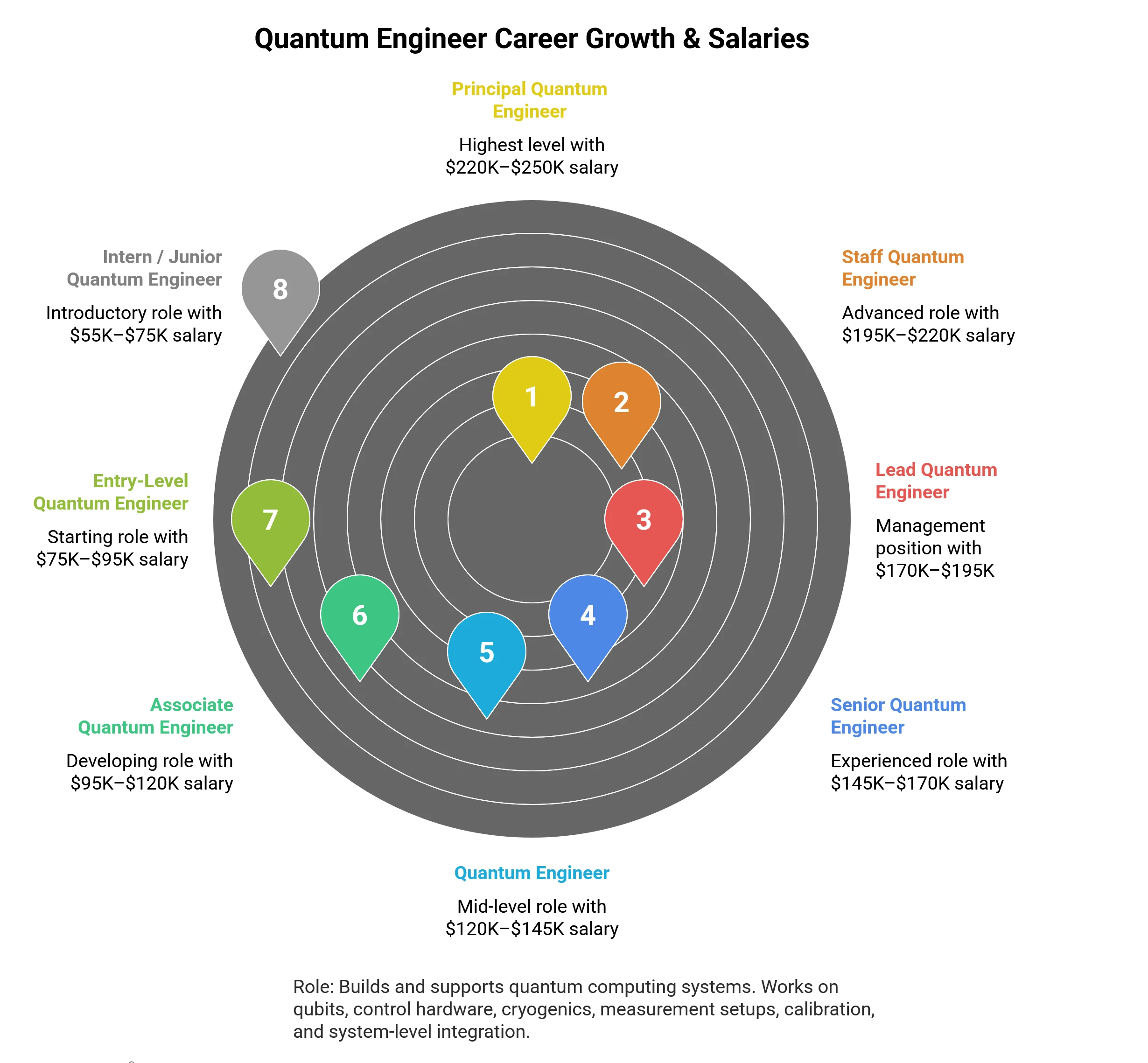A Quantum Engineer is a professional who designs and develops real-world quantum devices such as sensors, clocks, and communication systems for a variety of use cases outside of just computing. A Quantum Engineer works with quantum superposition and entanglement to develop tools for precise measurements for navigation, medical imaging, and scientific research.
Suggested Read: 10 Reasons to Choose Quantum Over Classical Computing Careers
Industry reports predict that by then, about 4,000 to 5,000 quantum engineers will be working on different projects. Projects such as atomic clocks and quantum radar systems. They can expect to earn between $85,000 and $160,000, depending on their industry and expertise.
The position requires expertise in practical engineering and commercial quantum technologies to develop applied engineering quantum devices. Major employers within the space, which is becoming more commercially feasible and practical for quantum sensors, include defense contractors, aerospace companies, medical device manufacturers, and research institutions.

What is the average base salary?
Min. Qualifications
What You Need to Know
What does a Quantum Engineer do?
A Quantum Engineer designs and builds quantum devices like sensors, atomic clocks, and communication systems. These systems are used for applications in navigation, medical imaging, defense, and scientific research.
What qualifications are needed to become a Quantum Engineer?
A master's degree in Engineering, Physics, or Materials Science is required. Experience in quantum systems, device fabrication, and practical knowledge of cryogenic or photonic systems are valuable.
What is the average salary for a Quantum Engineer?
Quantum Engineers earn $85,000-$160,000 globally. American positions average $129,000, while European roles are around €110,000, and remote positions are at $124,000 a year.
What industries hire Quantum Engineers?
Defense contractors, aerospace companies, medical device manufacturers, telecommunications firms, and research institutions hire Quantum Engineers. Their duties are to develop quantum sensors, secure communications, and precision measurement tools.
More Quantum Job Salaries
Cryogenic Engineer (Quantum Systems)
Builds ultra-low temperature systems for quantum hardware, earning $90,000-$185,000+.

Quantum Control Engineer
Designs and tunes quantum hardware control systems, earning $95,000-$190,000+.

Quantum DevOps Engineer
Manages quantum infrastructure and pipelines, earning $90,000-$180,000+.

Quantum Solutions Architect
Designs enterprise-ready quantum systems, earning $100,000-$210,000+.

Quantum Product Manager
Leads quantum product vision and delivery, earning $100,000-$220,000+.

Quantum Technical Writer
Creates documentation, and technical content for quantum computing products and research.


.svg)
.svg)

